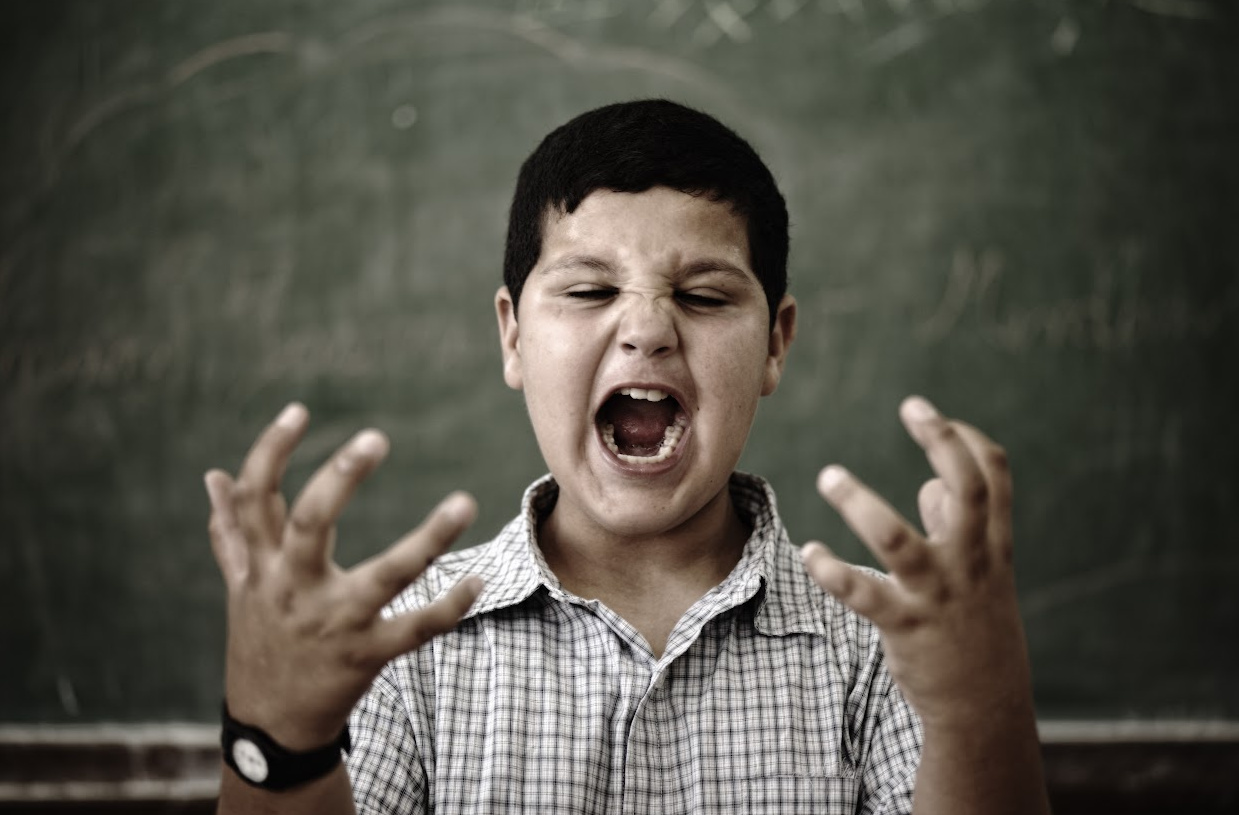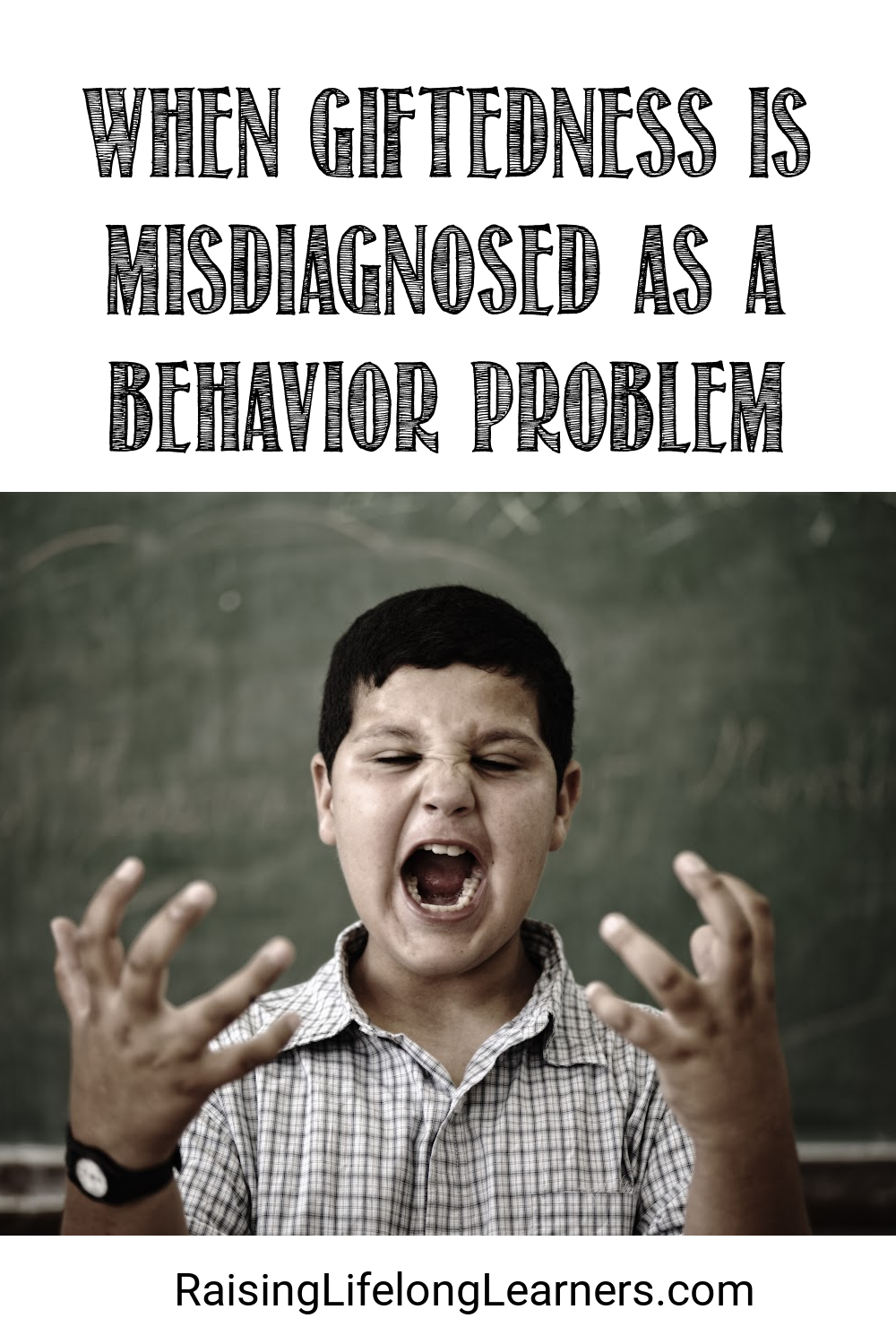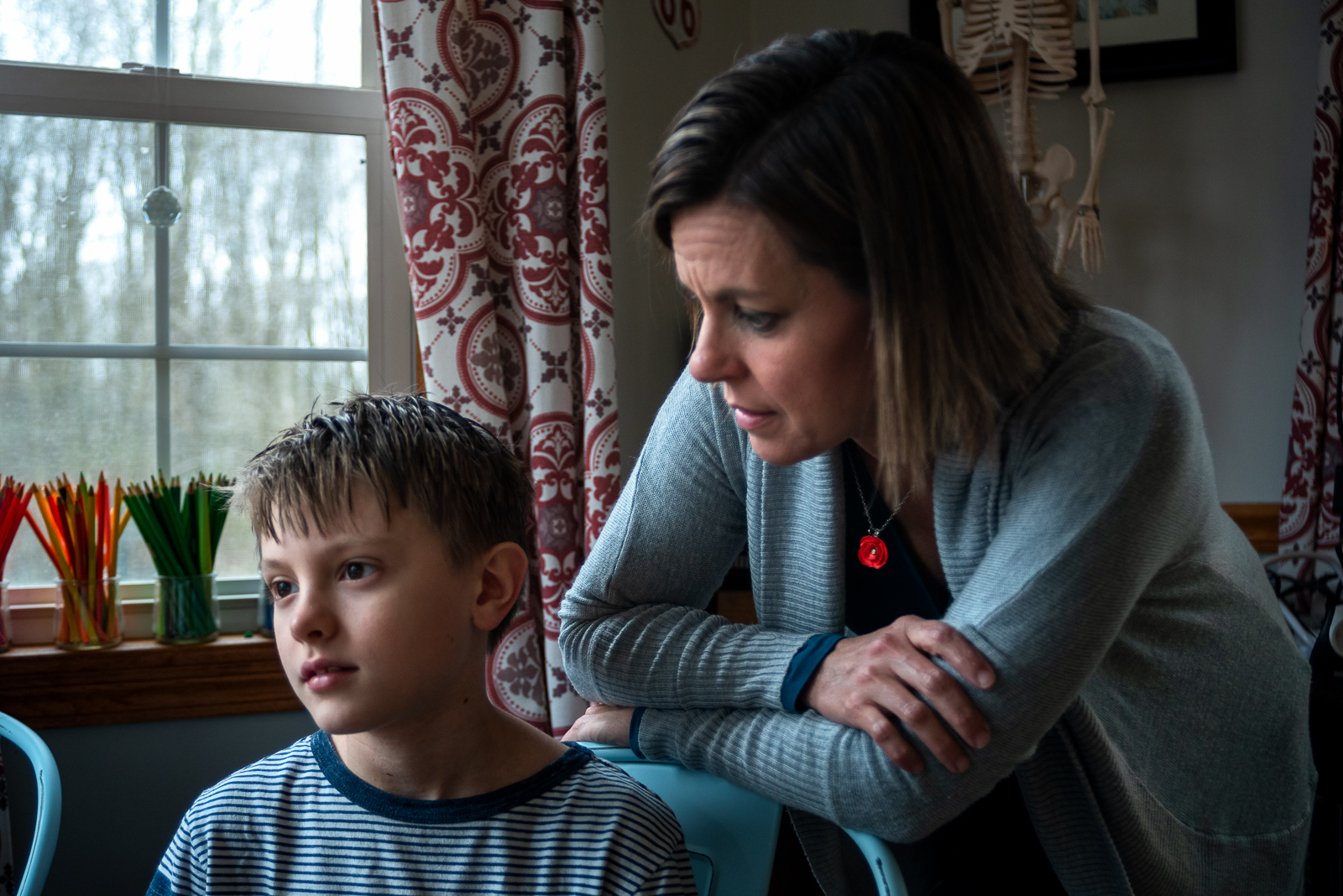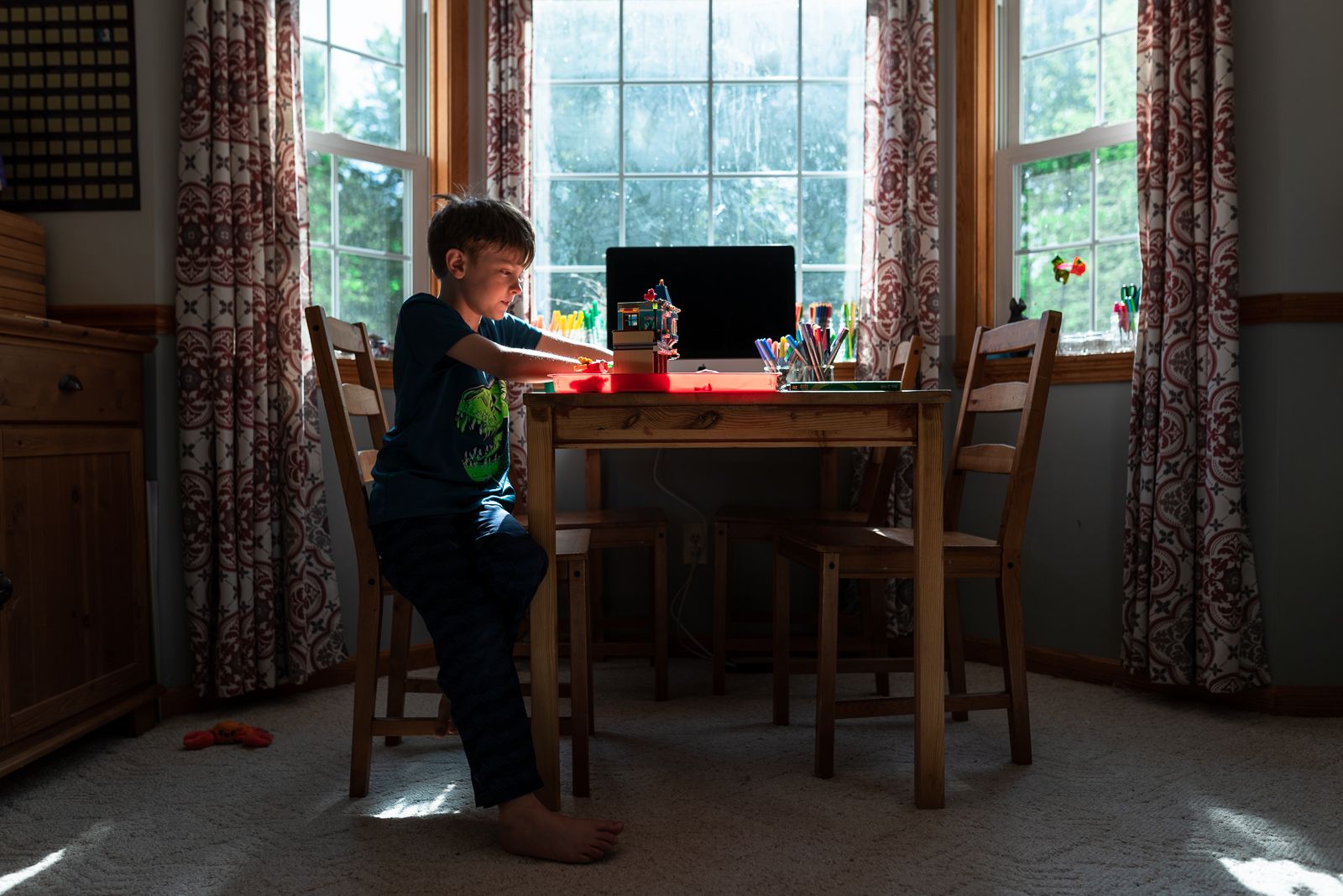When Giftedness is Misdiagnosed as a Behavior Problem
“But… what’s wrong with him?”
I was sitting across from the counselor we’d been seeing every week for six months, desperation leaking from my eyes and filling the small room with a heaviness we both felt. On the walls were graduate degrees and charts that identified emotions with children’s faces, the bookshelves were brimming with diagnostic manuals and parenting helps and countless books about understanding difficult people. None of them helped.
“I don’t know.”
When Giftedness Looks Like Behavioral Problems
This was the response, the honest, earnest response I heard from a man who was professionally trained and licensed to be able to know. I wasn’t angry, I didn’t hold it against him, because I didn’t know, either. My own counseling degree was proving as helpful as his, and the bookmarks hanging out of my DSM like tassels were just more road signs to nowhere.
“It doesn’t make sense! Kids with these issues normally have a diagnosis.”
Yet mine didn’t. At this point he was 6 years old and had undergone a few evaluations, ruling out an autism spectrum disorder and ADHD.
Researching behavioral disorders like Oppositional Defiant Disorder only confused me further – he fit some of the criteria, but not enough for it to make sense. He was so angry, for seemingly no reason.
“I don’t know why he’s presenting these behavior issues. Statistically we see kids acting this way when they come from a chaotic home environment, but you guys are doing everything right.”
A Different Approach to Emotional Problems
We’d tried so many different ideas. Elimination diets, essential oils, any and every parenting technique we stumbled across. We were firm, we were lenient. We gave him space and held him close. We tailored our parenting to birth order, to gender… I even looked up tips for parenting according to zodiac signs out of desperation.
Nothing helped.
Nothing gave us any insight into our boy, why he’d become increasingly angry, why it felt like we were losing him to outbursts, aggression, impulsivity.
When Even a Clinical Psychologist Couldn’t Help
At this point we’d tried counseling for half a year and welcomed any label, truly any, so we could at least understand what was happening and have a plan for how to help. Yet after 6 months of weekly therapy, we saw no improvement and had no answers.
None. Nothing.
We were as clueless as we were when we’d begun and our boy still had no control over his anger or the words to give us an explanation for it.
Life at home was hard. Slammed doors, screams, sibling rivalry. We loved our boy and wanted to help him, but we didn’t know how.
His brother and sister walked on eggshells, not knowing when or why he’d fly into a rage. School was a nightmare. He argued with his teacher, hid in his locker or under tables, fought with other students. He was a disruption who was becoming a danger, and we were terrified.
Worse, we were utterly clueless as to how to help him.
Related: What is an Intense Child?
The First Step Towards the Correct Diagnosis
I remember seeing the school’s phone number on my caller ID. I sighed, braced myself. I knew that number, knew it was about him, knew I wouldn’t have an explanation for whatever I was about to hear he’d done.
I’m sure I already had tears brimming as I answered. The counselor, only having known him for 6 months, knew to start the call with the reassurance, “Everyone’s okay….” She’d dialed my number often enough to know how to preface what she was about to tell me, but she’d never made this call before.
“Some papers will be coming home today and I wanted to talk to you about them. We administered the WASI and I had to check the scores four times to be sure. His scores were in the 99th percentile, I’ve never seen anything like it. It looks like he’s a genius.”
Misdiagnosis of Gifted Kids
Not a sociopath. Not a menace. Not an enigma. A profoundly gifted little boy whose brain was light years ahead of his developmental abilities and who couldn’t marry the two.
He underwent further, more formal testing over the years, evaluating him for more possible disorders and more IQ testing.
Each of the five (yes, five) times he’s been evaluated for autism the professional has been convinced going in he was on the spectrum, and each of the five (really, five) times they’ve shaken their heads at the fact that he is not.
Psychologists (plural) have come out in the middle of evaluations to ask if they can “check” for other things – ODD again, Conduct Disorder, Bipolar Disorder, ADHD, Sensory Processing Disorder, autism again.
Each time he falls short.
The Giftedness Component and Emotional Needs
He’s quirky, different, has a hair trigger, feels misunderstood, doesn’t relate to kids his own age and definitely does not like being treated like a kid. After all of the testing, all the possibilities, all the years of searching and reading and trying and crying, we were left with only one label – gifted.
Independence in kids his age looks like defiance. Boredom in kids his age can look like inattention. Anger in kids his age, it turns out, often isn’t actually about being angry.
Giftedness, we learned, often comes with intense emotions, quirks, anxiety that manifests as anger, intelligence that can read as argumentative power struggles, and sensitivity to stimuli that can mimic processing disorders.
Related: Asynchronous Development in Gifted Children
Characteristics of Giftedness
This was why we couldn’t get a diagnosis. This was why we couldn’t find a label that fit. His brain being so profoundly different from the majority of society meant he behaved differently from the majority of society, but his age being so much younger than the majority of society meant that he didn’t know how to handle it.
He looked like a duck, he often quacked like a duck, but try as we might we could not get him to swim like a duck… because he wasn’t a duck.
He wasn’t a bad kid and we weren’t bad parents. This wasn’t about temper tantrums and it wasn’t about a lack of training.
He was a small boy struggling with something we never even knew to look for.
His abnormal behavior was an attempt at communicating his abnormal intelligence, and none of the professionals he saw up until then (and few after) were qualified to interpret it. It wasn’t until we spoke with the gifted specialist at his school, spoke with other parents of gifted kids, that we began to really understand that not only did giftedness explain everything we’d been experiencing with him, but the outbursts and arguments were common among other gifted kids.
Medical Professionals and Gifted Students
We learned that while there are a number of twice-exceptional kids who struggle with both the weight of their giftedness and a comorbid disorder, there are also a LOT – a lot – of gifted kids who have been misdiagnosed or labeled incorrectly in an attempt to explain their baffling behavior.
We found that as well-meaning or educated as a therapist or doctor may be, many professionals have not studied giftedness or how it affects children, let alone what it looks like. We were humbled to realize that as well as we knew our boy, we missed such a huge part of him.
Related: Parenting and Teaching a Twice-Exceptional Child
Emotional Characteristics of Gifted Children
Giftedness doesn’t look like what you’d think and often looks like plenty of other things, so it is vital that we, the parents and caretakers of gifted children, advocate for them. Their behavior is telling us something their words can’t, and we have to be as loud as they are when it comes to getting them what they need.
While teachers or friends or well-meaning relatives are suggesting this label or that, we have to stay firm, loud, and educated. We have to speak up and ask – sometimes over and over again – for another opinion, another test, another possibility other than the ill-fitting diagnosis we’ve just been handed. We can’t allow all quacks to be dismissed as ducks.
More than anything, above all, we can’t fall into the trap of blaming ourselves for the mood swings and aberrant behavior of our gifted, struggling, hurting kids.
They’re not angry because we’re bad parents, they’re frustrated and don’t realize it.
They don’t struggle with friendships because we’ve done something wrong, there are just very few people they can truly relate to.
They’re different from the other kids because, well, they’re different from the other kids and have different needs.
A Life of Normal Giftedness
Life hasn’t become a dream since we pinpointed gifted traits as the cause of our son’s anger and outbursts. Having a label, an explanation, didn’t magically transport us to the other side. He still struggles, still gets angry, still has bad days because his brain still works differently.
Only now we know why. We know what his behavior is trying to tell us, know what will work and what won’t. We know he’s not lacking something from us and know he isn’t a rage monster. Just knowing doesn’t fix it, but it does help. We’re constantly learning together, with our son, about what he’s needing and what he’s feeling. We’re figuring out together how to address the real problem and offer appropriate support.
We’re working with a net now, have a foundation, we’re not flying blind… all the metaphors you can think of that give you hope that the long journey you’re embarking on isn’t a sightless wandering.
There’s nothing wrong with our son, he’s just gifted!
More support is now available for your child, and for you!
The Learner’s Lab is the community created just for your quirky family. It’s full of creative lessons, problem solving activities, critical and divergent thinking games, and the social-emotional support differently-wired children and teens need most.
All from the comfort of your own home.
This community was created to support children with intensities and help you as you build social and emotional skills and resiliency. We address topics just like this all year long, in a way that is educational and fun for children. They learn skills to help them copy and you learn how to help them along the way.






